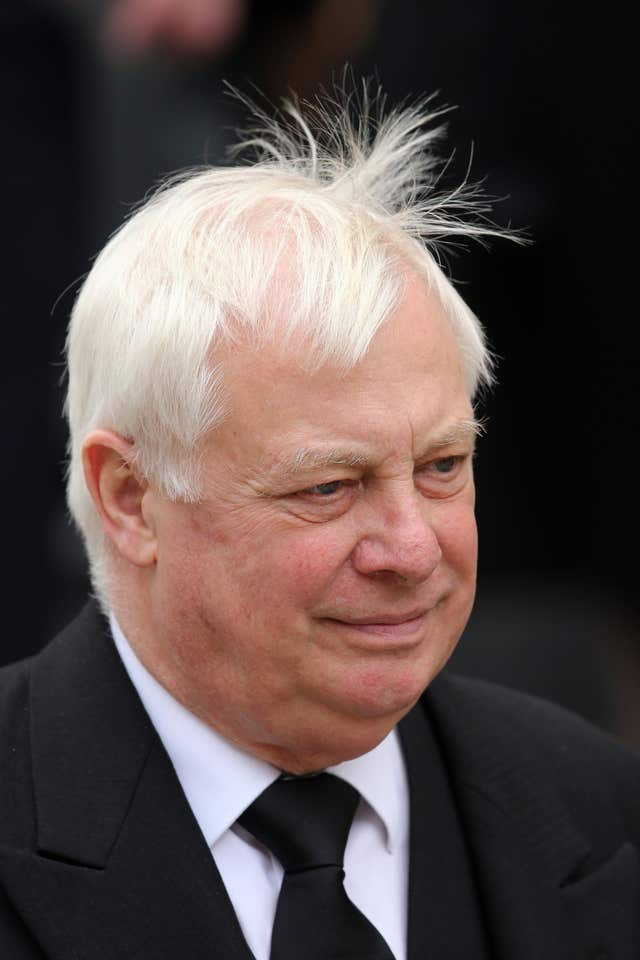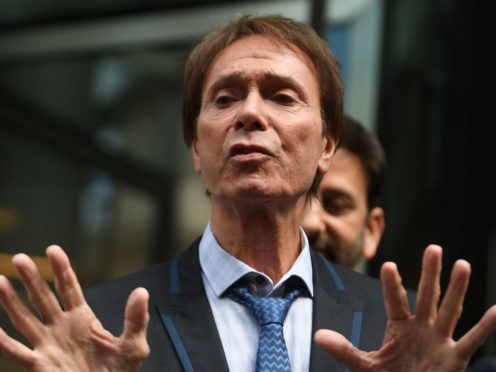Lord Patten has said the BBC would be “crazy” to appeal against a High Court ruling which found its coverage of a police raid on the home of Sir Cliff Richard breached his privacy.
The former chairman of the of the BBC Trust, the corporation’s now-defunct governing body, said decisions made by some “very good people” at the broadcaster were “wrong”.
He told BBC’s Newsnight he did not believe it was “BBC journalism at its best”.

“This is not what a public service broadcaster should be doing,” he said.
“And I think that the decisions made by some very good people whom I much respect at the BBC were wrong.
“And I think it would be crazy for the BBC arguing that there is some principle of freedom of speech involved and to appeal this decision.”
The Tory grandee was head of the BBC Trust between May 2011 and May 2014, stepping down four months before the incident took place.
He added: “I think they should swallow hard, say they made a mistake, apologise as they have to Cliff Richard, move on and not to do it again.”
BBC bosses have said they are considering an appeal after a judge ruled in Sir Cliff’s favour in the case, awarding him around £200,000 to cover the “general effect” on his life.
Sir Cliff had sued the BBC over broadcasts of a South Yorkshire Police raid on his home in Sunningdale, Berkshire, in August 2014, following a child sex assault allegation.
The singer said coverage, which involved the use of a helicopter, was a “very serious invasion” of his privacy, and he said he wanted damages at the “top end” of the scale.
BBC bosses disputed his claims, and said the coverage was accurate and in good faith.
BBC director of news Fran Unsworth put forward a public interest defence – saying sexual abuse of children was a matter of serious public concern, and that reporting might encourage victims to come forward.
High Court judge Mr Justice Mann oversaw a trial at the High Court in London during April and May.
He heard that, in late 2013, a man made an allegation to the Metropolitan Police, saying he had been sexually assaulted by Sir Cliff during an event featuring evangelist Billy Graham at Sheffield United’s Bramall Lane football stadium in 1985, when he was a child.
Metropolitan Police officers passed the allegation to South Yorkshire Police in July 2014.

Sir Cliff denied the allegation.
He was never arrested and in June 2016 prosecutors announced he would face no charges.
Mr Justice Mann said the BBC infringed the star’s privacy rights in a “serious” and “somewhat sensationalist” way.
“I do not believe that this justification was much in the minds of those at the BBC at the time,” he said in a ruling.
“I think that they, or most of them, were far more impressed by the size of the story and that they had the opportunity to scoop their rivals.”
The judge added: “Knowing that Sir Cliff was under investigation might be of interest to the gossip-mongers, but it does not contribute materially to the genuine public interest in the existence of police investigations in this area.”
He went on: “Public figures are not fair game for any invasion of privacy”
Following the ruling, Sir Cliff described the result as “wonderful news”, but editors warned it could have “worrying consequences” for press freedom.
Ian Murray, executive director of the Society of Editors, said: “The ruling to make it unlawful that anyone under investigation can be named is a major step and one that has worrying consequences for press freedom and the public’s right to know.
“In many situations, the publishing of the name of someone under investigation has led to other witnesses and victims coming forward. We should also consider that the reverse is true.”
He added: “It is vital that the actions of the police should be kept under scrutiny in a free society and this change in the law will make that much harder.”
Lawyer Nicola Cain, who works at law firm RPC, said: “This is a landmark judgment in many ways, all of which are bad for the media.”
She added: “The media is going to have to walk on eggshells when reporting on police investigations from now on.”
